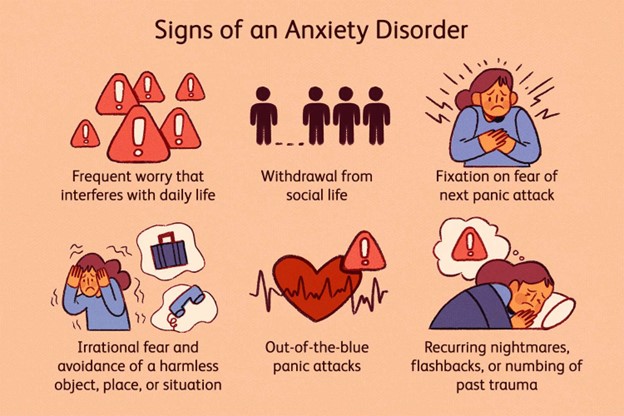A nurse is caring for a young adult client who says he is experiencing increased anxiety and an inability to concentrate. Which of the following responses should the nurse make?
"How long has this been going on?"
"Why do you think you are so anxious?"
"Have you talked to your parents about this yet?"
"It sounds like you're having a difficult time."
The Correct Answer is D
A. "How long has this been going on?":
While this question is important for gathering more information, it may come across as more investigative or less empathetic at this initial stage of the conversation.
B. "Why do you think you are so anxious?":
While it's important to understand the client's perspective, this response might come across as confrontational or judgmental. It's better to create an open and non-judgmental environment for the client to share their feelings.
C. "Have you talked to your parents about this yet?":
This response assumes that the client has parents to talk to and may not be relevant for all clients. It's also important to establish trust and rapport with the client before asking about their support network.
D. "It sounds like you're having a difficult time.":
This response is empathetic and validating. It acknowledges the client's feelings without making assumptions or demands, creating a supportive environment for further discussion.

Nursing Test Bank
Naxlex Comprehensive Predictor Exams
Related Questions
Correct Answer is D
Explanation
A. Dental erosion can occur due to conditions like gastroesophageal reflux disease (GERD) or frequent vomiting, but it is not a characteristic feature of anorexia nervosa.
B. Hyperactive bowel sounds are not specific to anorexia nervosa and may be seen in various gastrointestinal disorders.
C. Hypertension is not a common finding in individuals with anorexia nervosa. In fact, hypotension (low blood pressure) is more commonly observed due to decreased cardiac output related to malnutrition and electrolyte imbalances.
D. bradycardia in a client with a new diagnosis of anorexia nervosa. Bradycardia (abnormally slow heart rate) is a common cardiovascular manifestation in individuals with anorexia nervosa. It is often a result of the body's adaptive response to conserve energy due to severe malnutrition and reduced caloric intake.
Correct Answer is ["C","D","E"]
Explanation
Fine hand tremors and pill rolling are not indicative of tardive dyskinesia. These symptoms are more commonly associated with other neurological or movement disorders.
B. Urinary retention and constipation:
Urinary retention and constipation are not symptoms of tardive dyskinesia. These symptoms are more related to anticholinergic effects of certain medications.
C. Facial grimacing and eye blinking:
Facial grimacing and repetitive, involuntary movements such as eye blinking are characteristic of tardive dyskinesia. These abnormal movements of the face and eyes are commonly seen in individuals who have been on long-term antipsychotic medications, especially older ones like haloperidol.
D. Involuntary pelvic rocking and hip thrusting movements:
TD often includes repetitive, purposeless movements of the limbs, trunk, and pelvis.
E. Tongue thrusting and lip-smacking:
Tongue thrusting and lip-smacking are classic symptoms of tardive dyskinesia. These repetitive, involuntary movements involving the mouth and tongue are often observed in individuals who have been on antipsychotic medications for an extended period of time.
Whether you are a student looking to ace your exams or a practicing nurse seeking to enhance your expertise , our nursing education contents will empower you with the confidence and competence to make a difference in the lives of patients and become a respected leader in the healthcare field.
Visit Naxlex, invest in your future and unlock endless possibilities with our unparalleled nursing education contents today
Report Wrong Answer on the Current Question
Do you disagree with the answer? If yes, what is your expected answer? Explain.
Kindly be descriptive with the issue you are facing.
